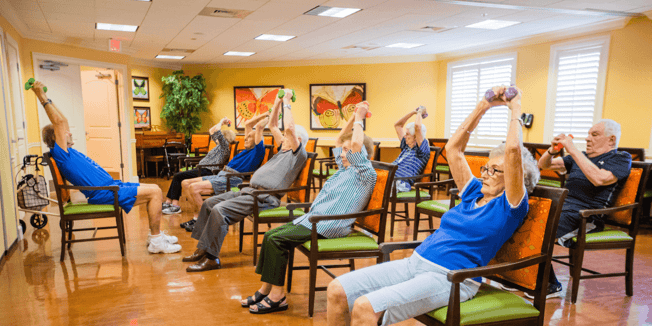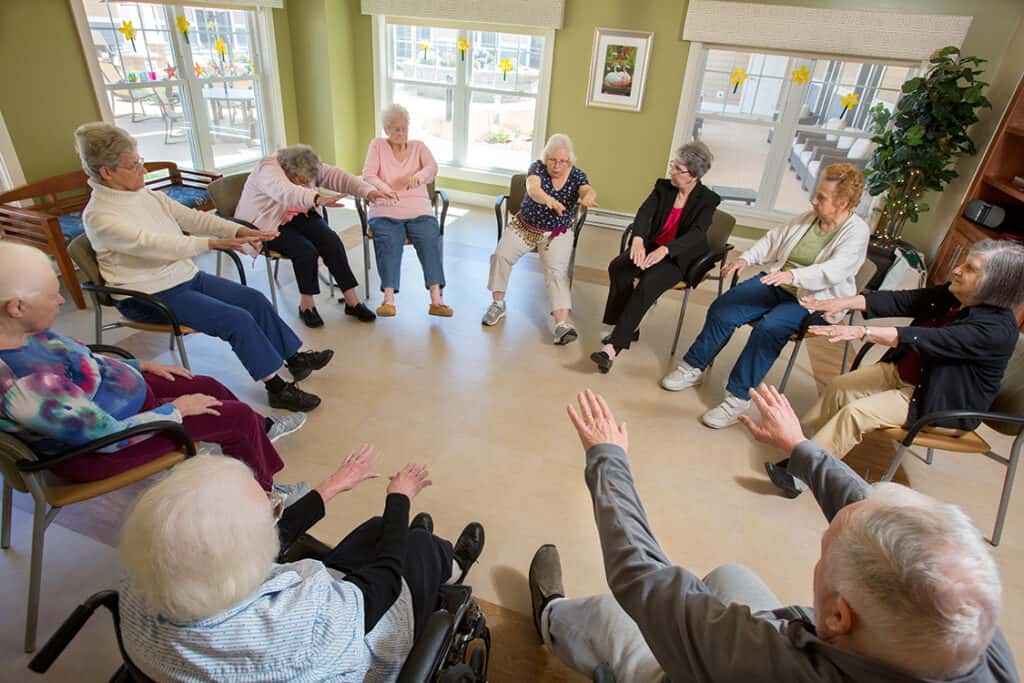Aided Living: a Compassionate Environment for Elders With Memory Difficulties
Assisted living centers significantly function as thoughtful atmospheres tailored to the distinct needs of seniors grappling with memory challenges. By offering personalized care and organized regimens, these neighborhoods not just improve cognitive feature but also foster psychological connections, minimizing seclusion among locals. Specialized strategies, such as songs treatment and reminiscence techniques, are employed by skilled team to help with deeper communication. The performance of these treatments usually pivots on the involvement of family members in the care process, prompting a closer examination of exactly how this collaborative initiative influences end results for both citizens and loved ones.
Recognizing Memory Obstacles
Understanding memory difficulties is necessary for offering efficient care to elders facing cognitive decrease. Memory impairments, which can materialize as forgetfulness, confusion, or trouble recalling recent events, are frequently signs and symptoms of problems such as Alzheimer's illness or other types of dementia. These difficulties can substantially impact an elderly's ability to execute daily jobs, keep social connections, and handle individual safety and security.
Recognizing the various stages of cognitive decrease is essential for caregivers and health care specialists. Early-stage amnesia might involve mild forgetfulness, while mid-stage decrease can bring about more noticable disorientation and confusion. In late-stage dementia, individuals might shed the capacity to connect effectively, requiring extensive support and understanding from caregivers.
Additionally, memory challenges can stimulate a series of psychological responses, consisting of irritation, anxiety, and anxiety. This requires a caring method to care that focuses on the emotional health of the person. Comprehending the complexities of memory challenges makes it possible for caretakers to produce tailored approaches that improve interaction, promote interaction, and give a complacency. Ultimately, a deep understanding of these difficulties is essential to delivering caring and reliable care for elders facing cognitive decrease.
Advantages of Assisted Living
Aided living deals various benefits for seniors with memory obstacles, offering a supportive setting that fosters freedom while ensuring safety and security and care. Among the main advantages is the day-and-night guidance and support readily available, which helps alleviate risks linked with memory-related issues. Memory Care. This consistent support permits seniors to engage in day-to-day activities without the concern of accidents or confusion
In addition, assisted living facilities usually offer organized regimens that can boost cognitive function and stability. These regimens aid residents feel even more safe and secure and decrease stress and anxiety, as they recognize what to expect every day. Social communication is an additional significant benefit, as these atmospheres urge connections among locals, advertising psychological well-being and decreasing feelings of seclusion.
In addition, assisted living staff are trained to acknowledge the one-of-a-kind demands of seniors with memory challenges, enabling customized treatment strategies that resolve individual preferences and requirements. This tailored method not only improves the high quality of treatment yet additionally encourages elders to keep a feeling of freedom. Overall, assisted living functions as a compassionate solution, balancing the need for support with the desire for independence in the lives of seniors facing memory challenges.
Specialized Care Approaches
Implementing specialized care strategies is crucial for efficiently supporting seniors with memory obstacles. One basic approach is person-centered care, which emphasizes the relevance of comprehending each local's life background, choices, and values.
An additional important technique involves making use of cognitive stimulation treatments. Tasks designed to boost memory recall, motivate social communication, and promote psychological agility can significantly influence locals' total wellness. Strategies such as reminiscence treatment take advantage of individual memories to stimulate discussion and connection, while songs you can try these out therapy can evoke feelings and memories, providing convenience.

Producing an Encouraging Community
(Memory Care Facility Charlotte)An encouraging neighborhood plays a critical function in boosting the lives of seniors with memory obstacles. Such a community promotes an environment of understanding, empathy, and inspiration, which is important for people encountering cognitive problems. By developing a network of support, helped living centers can significantly enhance the lifestyle for residents.
Central to a helpful area is the presence of qualified personnel that are sensitive to the distinct requirements of elders with memory impairments. These experts not just give important care however additionally engage locals in significant tasks that boost cognitive feature and promote social interaction. Programs that motivate involvement in team workouts, arts and crafts, or memory video games can boost both physical and mental well-being.
Furthermore, a helpful community promotes strong connections amongst residents. Motivating relationships and peer support assists to minimize sensations of seclusion and cultivates a feeling of belonging. Normal gatherings and communal dining experiences can further strengthen these bonds, producing an environment where senior citizens feel valued and recognized.
Involving Family Members in Treatment
Involving households in the care process is vital for supplying detailed support to senior citizens with memory challenges. Relative often function as essential supporters, using understandings into the individual's choices, background, and regimens that can improve customized care. By including them in conversations and treatment planning, assisted living centers can develop a much more alternative approach that reverberates with the homeowner's requirements.

Encouraging households to join care not just enhances the wellness of the elderly however additionally provides psychological assistance to member of the family. Entailing families in treatment grows a sense of neighborhood and belonging, making certain that seniors really feel attached to their loved ones. Eventually, a joint approach to care enhances the lives of both homeowners and their families, producing a thoughtful and encouraging environment that promotes self-respect and regard.
Conclusion
In final thought, helped living serves as an important resource for seniors experiencing memory challenges, providing personalized care tailored to individual demands. By entailing family members in the treatment process, assisted living develops a detailed support network, ultimately improving the lives of residents and their loved ones.